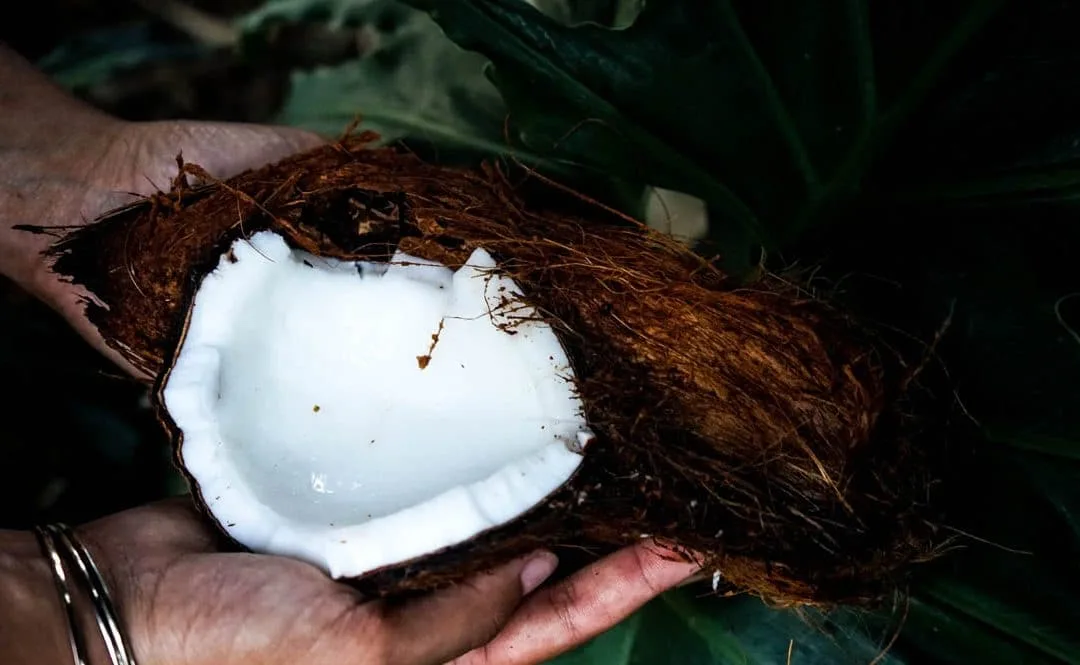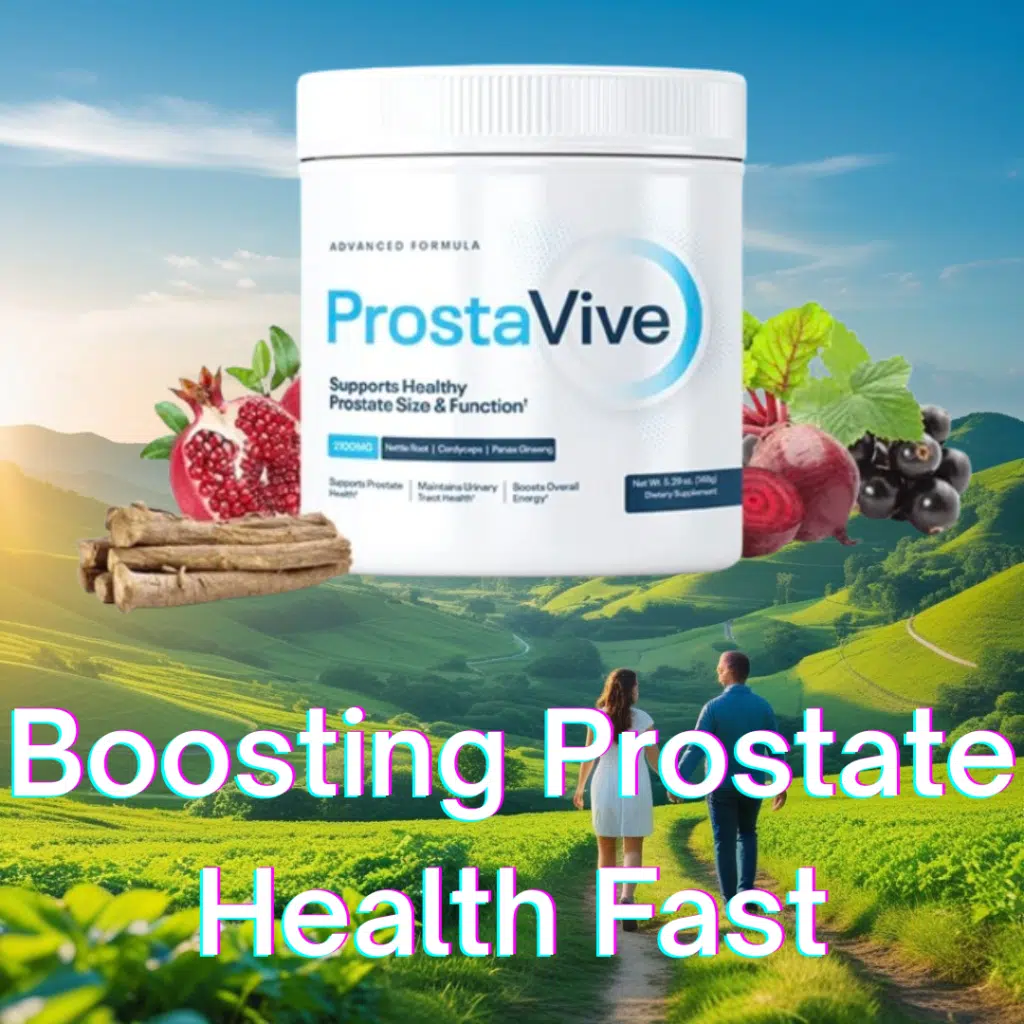Coconut Oil Has Been a Long Rising Star In The Health Industry
It’s gotten more and more attention for various different applications. My sister introduced me to this years ago for healthier hair and using it for dry skin. I did a ton of research on it and I found some great coconut oil facts regarding the health benefits for people suffering from Dementia and Alzheimer’s. My mother in law, who was diagnosed with Dementia, had started a steady decline in health, which prompted my extensive research into this topic. It’s hard to say if she would have taken coconut oil regularly if it would have changed the speed of this awful disease. But with more and more studies and legitimate coconut oil facts available, it certainly makes sense to implement this into our diets whenever possible.
Coconut oil along with many other coconut products has been a staple food for many people for thousands of years. Although coconut oil is rich in saturated fatty acids, it has a wealth of extremely helpful properties for human health. For example, coconut oil is very easily digestible (sometimes too easy if you know what I mean!) It regulates blood fat levels, has an antimicrobial effect (both internally and externally) and almost never leads to obesity. These are indisputable coconut oil facts but how is it that some experts still regularly, but completely unjustifiably, advise against coconut oil?
Overview
Coconut Oil Facts – One of the Most Natural Oils
Coconut oil is one of the most natural oils available to us. The ripe coconut consists of about 35 percent coconut oil and once opened, can be eaten very easily.
Imagine the grapeseed in comparison. It is tiny and rock-hard. It is not really possible to eat it, easily. Grapeseed oil isn’t exactly the kind of “natural oil” that coconut oil is because, without monoculture and mechanical processing, grapeseed oil would not exist at all. Also, safflower oil or soy oil is not exactly oils that we have known or used for ages. Those oils have just taken some of the spotlights recently with the uprising of the vegan population and as more and more allergies from milk protein are reported.
Coconuts, however, are a staple food for the people of the South Seas – a staple food that has kept them fit and healthy for thousands of years without ever having to worry about diabetes, cholesterol levels, heart attacks or strokes. Hard to believe considering the modern medical world will say that fat is bad! Coconut oil is proof of a contradiction of that statement, and proving that there is a vast difference between healthy fats and unhealthy fats! And that is a coconut oil fact!
If you knew the fatty acid composition of coconut oil, you might be surprised
Very simple: coconut oil IS healthy! After all, coconut oil consists to a very large extent – namely of over 90 percent – of saturated fatty acids. And saturated fatty acids, as we have been taught long enough, are bad, lead to increased cholesterol levels and sooner or later to heart attacks and strokes.
So how can coconut-eating indigenous people stay healthy despite high coconut oil consumption?
The above-mentioned fact that coconut oil in the form of how a coconut naturally grows without modification and is presented to us in such an easily accessible way by nature. I think it’s pretty safe to say this is a sign that coconut oil is an extremely high-quality and natural food.
Today, of course, hardly anyone is satisfied with such an explanation. Coconut oil facts are what confirms this notion. Scientific analyses and investigations are required. And behold, the research did not come to any other conclusion – no matter how hard it tried to disprove.
Coconut oil is not only healthy, but it also makes you healthy and therefore fits perfectly into a diet in which food may also be a remedy. The rest of this article is going to dive deep into coconut oil facts and some science stuff for all you science people like me!
HERE COMES THE SCIENCE STUFF – COCONUT OIL FACTS
First look at the fatty acid composition of coconut oil. This will give you an overview of the proportions of the individual fatty acids.
The fatty acid composition of coconut oil; The coconut oil consists among other things of –
Lauric acid 44 – 52 %
Capric Acid 6 – 10 %
Caprylic acid 5 – 9 %
Myristic acid 13 – 19%.
Palmic acid 8 – 11 %
Stearic acid 1 – 3 %
Oleic acid (monounsaturated FS) 5 – 8 %
Linoleic acid (polyunsaturated FS) 0 – 1 %
The first three on the above list belong to the medium-chain fatty acids contained in coconut oil, with lauric acid being one of the best-known and best-studied. Coconut oil is, therefore, the only natural oil far and wide that consists of well over 50 percent medium-chain fatty acids. But what is behind medium-chain fatty acids?
Coconut Oil is Rich in Medium-Chain Fatty Acids
Medium-chain fatty acids are saturated fatty acids with a certain chain length. While, for example, a long-chain fatty acid such as stearic acid consists of a chain with 18 C atoms (C stands for carbon), caprylic acid consists of only 8 C atoms, a capric acid of 10 and lauric acid of 12 C atoms.
Medium-chain fatty acids thus consist of chains with 8 to 12 C atoms and long-chain fatty acids of chains with 14 to 24 C atoms.#
It is the medium-chain fatty acids that give coconut oil most of its special properties.
Coconut Oil Fact – Easily Digestible and Fewer Calories
Medium-chain fatty acids are first of all very easily digestible. They can be digested without the cooperation of bile acids. They are soluble in water and therefore reach the liver through the bloodstream without digestion.
Here is the next advantage – they are used by the body very easily for the energy production and stored less gladly into the fat depots.
In addition, medium-chain fatty acids provide one calorie less per gram than other fatty acids.
These two properties of the coconut oil fatty acids lead to the fact that coconut oil has the reputation to contribute less to weight gain than other fats, yes, on the contrary even to help losing weight.
This aspect was confirmed by a Japanese controlled double-blind study published in 2001 in The Journal of Nutrition. 78 overweight but healthy participants (men and women with BMI over 23) were divided into two groups. Both ate the same during the 12-week study period, only one group (M) received 60 grams of medium-chain fatty acid fat per day and the other group (L) received 60 grams of long-chain fatty acid fat per day.
Both groups lost weight. However, group M lost significantly more weight than group L. And not only that.
It is well known that diets often reduce muscle mass in particular, while the body fat percentage can only be reduced hesitantly. Group M, however, experienced a significantly higher body fat loss as well as a higher fat loss of the subcutaneous tissue than group L.
The researchers concluded at the time that medium-chain fatty acids can reduce body weight and body fat more effectively than a diet containing long-chain fatty acids. Pretty cool right??
Coconut Oil Works Against Viruses, Bacteria, and Fungi
Another very special and unique effect of coconut oil is guards against viruses, bacteria, and fungi. The medium-chain fatty acids of coconut oil have an antimicrobial, antiviral and antifungal effect – both when used internally and externally.
Therefore, Coconut oil is commonly used as a skin oil of choice for fungal diseases. Coconut oil can also be used to treat vaginal fungus or bacterial diseases of the vaginal mucosa, for intimate care or as a lubricant, thus helping to combat unpleasantly itchy microbes and fungi on the spot. Ummmm…is there anything Coconut Oil can’t do? By this point, you might be wondering how coconut oil works against bacteria AND viruses? Well my friends, more science coming right at you, keep reading!
Coconut Oil: Lauric Acid Against Herpes and Other Viruses
Medium-chain lauric acid alone accounts for about 50 percent of the fatty acids found in coconut oil. In the human or animal body, lauric acid is initially converted into monolaurin.
There have also been studies that show that free lauric acid also has antimicrobial properties. However, it is mainly monolaurin – a so-called monoglyceride – which ultimately acts against viruses and bacteria.
Monolaurin fends off enveloped viruses (e.g. HI, herpes, cytomegalovirus and flu viruses) in the human and animal organism. Enveloped viruses are surrounded by a lipid envelope.
Monolaurin is dangerous for viruses because it can dissolve this shell, which leads to the inactivation of the virus.
About six to ten percent of the fatty acids in coconut oil consists of capric acid – also a medium-chain fatty acid with a similar health-promoting effect as lauric acid.
Coconut Oil: Capric acid Against Chlamydia & Other Bacteria
Capric acid is also particularly effective when it is converted in the human or animal organism into its monoglyceride, monocaprin. Monocaprin is currently being tested for both its antiviral activity against herpes simplex viruses and its antibacterial activity against chlamydia and other sexually transmitted bacteria.
However, older studies on this topic are already available, such as those by Thormar et al. (1999), in which the inactivating effect of monocaprin on the mentioned viruses including HIV was demonstrated – at least in vitro.
The study by Bergsson et al. (1998) showed how medium-chain fatty acids act against chlamydia.
Overall, lauric acid or monolauric acid has a higher antiviral activity than the other medium-chain fatty acids or their monoglycerides.
Viruses that can be inactivated by medium-chain fatty acids include, in addition to the:
HIV virus
the measles virus,
the herpes simplex 1 virus (HSV-1),
the Vesicular Stomatitis Virus (VSV),
the Visna virus and the
Cytomegalovirus.
Coconut Oil Against Fungi
The medium-chain fatty acids in coconut oil also reduce the activity of fungi, such as Candida Albicans.
Several studies showed, on the one hand, an antifungal effect of capric acid on Candida implantations in the mouth area of prosthesis wearers and on the other hand
Several studies showed an in vitro destruction of three different Candida strains by both capric acid and lauric acid. Studies also showed that capric acid proved an antifungal effect on Candida strand in the mouth area.
Coconut oil can, therefore, be used successfully for fungal infections of all kinds.
Internally for intestinal fungal infections and externally for fungal infections of the skin or mucous membranes.
With all this antimicrobial activity of coconut oil, You might wonder whether coconut oil or its fatty acids might also have a destructive effect against the GOOD bacteria on our intestinal flora. Fabulous question and that was my thought as well!
Coconut oil: Medium-Chain Fatty Acids Harmless for Intestinal Bacteria
Medium-chain fatty acids or their monoglycerides such as monolaurin do not seem to have any harmful effect on useful intestinal bacteria, but only on potentially pathogenic microorganisms.
Researchers around Isaacs (1990), for example, found no inactivation by monolaurin in the widespread microbes that frequently colonize the intestines, such as Escherichia coli.
In the case of pathogenic microbes such as Haemophilus influenza, Staphylococcus epidermidis and Gram-positive Group B Streptococcus, they found a very strong inactivation!
A fat that can eliminate bacteria, viruses, and fungi are of course great. But what about heart health, cholesterol levels and the condition of the blood vessels when you eat a lot of coconut oil with all the enthusiasm?
After all, it would not be very practical to die of a heart attack while curing a bacterial, fungal or viral infection. No, not practical at all! So now I’ll venture into this topic about how coconut oil has a very beneficial effect on the heart, the blood vessels and also on the cholesterol level.
Coconut Oil Facts About Heart Diseases – What Are The Risks?
Research over four decades into the interactions between coconut oil as a dietary supplement and heart disease has largely come to the same conclusion:
Coconut oil is extremely helpful in minimizing the risk factors for heart disease
Blackburn et al. (1988), in their study, dealt with the published literature on the “effects of coconut oil on serum cholesterol and atherogenesis” and concluded that “coconut oil, when supplemented with other fats or sufficiently with linoleic acid, is a neutral fat with respect to atherogenesis”. (Atherogenesis = Origin/development of arteriosclerosis)
After Kurup & Rajmoran had dealt with the same literature at the end of the 1990s, they conducted a study among 64 volunteers and found that coconut oil consumption “did not lead to any statistically significant change in all cholesterol values (total cholesterol, HDL cholesterol, LDL cholesterol, etc.) in comparison with the initial value”. The results were announced in 1995 in India at the Symposium on Coconut and Coconut Oil in Human Nutrition.
Kaunitz & Dayrit investigated even earlier, in 1992, the epidemiological experimental data of groups who had consumed coconuts throughout their lives and wrote
“The available population studies show that coconut oil in the diet leads to neither, high serum cholesterol nor to high mortality or morbidity from coronary heart disease.”
They also found that Mendis et al (1989) had detected undesirable lipid changes in young male adults from Sri Lanka after they had changed their diet from ordinary coconut oil to corn oil.
Although serum cholesterol decreased by 18.7 percent and LDL cholesterol by 23.8 percent due to corn oil, HDL cholesterol (good cholesterol) fell by 41.4 percent, far below the lowest acceptable HDL level of 35 mg/dL, so the LDL/HDL ratio increased by 30 percent – which is an extremely bad sign.
Prior et al (1981) had already shown similar results, namely that islanders who consume large amounts of coconut oil “did not see any evidence that the high intake of saturated fats has a harmful effect in these groups”.
However, when these groups migrated to New Zealand, where their coconut oil consumption decreased, their total cholesterol and LDL cholesterol levels increased and their HDL cholesterol levels decreased.
Mendis & Kumarasunderam (1990) again compared the effects of coconut and soy oil in young men with normal blood fat levels, and again the consumption of coconut oil led to an increase in HDL cholesterol (good cholesterol), whereas soya oil lowered this desired lipoprotein.
Coconut Oil Facts About Arteriosclerosis
Arteriosclerosis is the stiffening or hardening of the artery walls.
Further research has shown that herpes and cytomegaloviruses may play a role in the formation of arteriosclerotic deposits in the blood vessels as well as in the re-narrowing of the arteries after angioplasty (surgical dilatation of a blood vessel, e.g. by inserting a stent) (article in the New York Times 1984).
It is interesting to note that the antimicrobial active monolaurin – as we have seen above – can inhibit precisely these herpes and cytomegaloviruses, but monolaurin is only produced in the body if lauric acid is part of the diet. And lauric acid is contained in coconut oil.
A review by Lawrence (2013) summarizes the current state of knowledge as follows:
“Although earlier studies indicated that a diet containing saturated fats and low levels of polyunsaturated fats would increase cholesterol levels and the risk of heart disease, the evidence has always been weak.”
Over the years it has been shown that saturated fats are not related to heart disease or other health problems, but on the contrary – especially saturated fats from coconut oil – can improve health. It could be possible that the frequent recommendation to avoid coconut oil (because of the allegedly dangerous saturated fatty acids) could also be seen as a contribution to the increase in coronary heart disease – and perhaps also to the increase in dementia in the population.
Coconut Oil Against Dementia
The brain affected by Alzheimer’s can only insufficiently use glucose as a source of energy. However, coconut oil can be used to produce so-called ketones.
Now the Alzheimer brain can also use this to generate energy, the symptoms decrease and the disease progresses more slowly or even improves.
Coconut Oil for Cancer
Coconut oil can also be integrated into the diet of cancer patients. It provides the often emaciated body with easily digestible calories, relieves the immune system through its antimicrobial effects and has an additional anti-inflammatory effect.
Yes, there is even a specific program (ketogenic purification) that is carried out over three to ten days and helps starve cancer cells, while healthy body cells are supplied with fuel from ketones derived from coconut oil.
There is one really important thing you should note about coconut oil:
While ingesting coconut oil has proven lots of benefits, start off small on the amount you take. It is VERY EASILY DIGESTED and it’s an oil, this makes for some loose stools! Its harmless in nature and nothing to worry about if this does happen to you, just be aware, it’s possible. It’s best to start off with small amounts to see how your body responds to it. By small, I mean about 1 teaspoon, or 2 teaspoons at a time. I used to spread that on sugar cookies (I know, I know, totally NOT healthy, or is it?) and give to my mother in law. She loved it and it was her favorite way to take coconut oil. However, we found that more than 1 Tablespoon for each “dose” was a bit too much for her digestive system. So we kept it at 1Tablespoon in the morning and 1 Tablespoon in the evening.
Another thing to note: Coconut oil is a solid when kept at room temperature. When heated it turns to liquid. It’s not recommended to use coconut oil for cooking in high heat as it changes composition when heated too high. Heating the oil to use as a hair mask, or even as a carrier oil for essential oils is just fine and ideal. If you want coconut oil that does not solidify check out MCT oil. This is unrefined coconut oil and really fantastic. Because it is a liquid and does not harden, you can mix in cold drinks no problem. It’s really great for smoothies and people who are on the ever so popular, Keto diet rave about MCT oil. You can find that product by clicking here!
Coconut Oil: Victims of the Edible Oil Industry
It is interesting to note that most of the listed positive properties and effects of coconut oil have been known for many decades – as the data of the listed studies show – so they were simply left out of the equation in order to talk us into believing that industrial oils, which have been elaborately produced from genetically modified seeds such as grapeseed oil or soybean oil, are particularly healthy. It’s not that these oils are terrible or anything, but the food industry has successfully detoured society away from coconut oil and towards the industries preferred. Cha-Ching!
Unfortunately, the advantages of coconut oil were not only neglected, but they were also downright bad mouthed in order to attract as many people as possible to the side of polyunsaturated vegetable oils, which, to top it all off, were offered for sale in a highly industrialized manner.
For more than three decades, coconut oil and its producers suffered from defamation originating in the USA, for example from publications of the consumer protection organization Centres for Science in the Public Interest (CSPI), the American Soybean Association (ASA) and other representatives of the edible oil industry.
At the same time, there were publications from the scientific and medical community, which in turn had received their misinformation from institutions such as the CSPI and the ASA.
But how did all this begin? Ahhh a tangled web they weaved and the plot thickens. Of course, there was some sort of scandal, isn’t that how it always starts when it comes to our food industry?
Coconut Oil: Victims of Misinformation
In the late 1950s, a researcher in Minnesota claimed that hardened vegetable fats were the cause of the increase in heart disease.
The edible oil industry feared a drop in sales and claimed that the problem was not hardening but the saturated fatty acids present in the hardened fats.
At the same time, a researcher from Philadelphia reported that the consumption of polyunsaturated fatty acids led to a reduction in cholesterol levels.
The reaction of the edible oil industry to this scientific publication and its general recognition was to focus more and more on replacing the “saturated fats” found in food with “polyunsaturated fats”.
In the industrial processing of unsaturated fats, however, there is an enormous risk that the volatility of these fats may lead to the development of harmful degradation products and, of course, particularly dangerous trans fats. However, nobody was interested in this at the time.
Then, in August 1986, the above-mentioned consumer protection organization CSPI published a “press release” in which it described “palm, coconut and palm kernel oil” as “rich in arterial-clogging saturated fats”.
The CSPI also called for the mandatory addition of ‘saturated fats’ when coconut oil or palm oil was present in a product.
In 1988, the CSPI published a brochure entitled “Saturated Fat Attack”. This brochure contained lists of products containing “unwanted tropical oils” so that consumers could avoid these products.
The brochure contained a number of serious errors: for example, it provided an incorrect description of the biochemistry of fats and oils and gave false information about the fat and oil composition of many products.
All this was incidental. The main thing was that consumers avoided tropical fats such as coconut oil in the future and only bought indigenous oils and fats or products made from them.
Coconut Oil in the Focus of the Soybean Oil Industry
At the same time, the American Soybean Association ASA also launched a campaign against coconut oil and other tropical oils, e.g. by sending anti-coconut oil letters to soybean farmers or placing advertisements with a “guide to combating (tropical) fats”.
Another ASA project was to hire a “nutritionist” to monitor supermarkets in Washington to check foods for coconut oil and other tropical oils.
At the beginning of 1987, the ASA called on the FDA to introduce the labeling requirement “contains tropical fats” – thus blowing the same horn as the CSPI had done before.
The ASA campaign against coconut oil continued in mid-1987. On June 3, 1987, the New York Times published an editorial, “The Truth About Vegetable Oil,” in which coconut oil and other tropical oils were described as “the cheaper, arterial-clogging oils of Malaysia and Indonesia,” claiming that tropical oils did not comply with U.S. dietary guidelines, although that was by no means clear. The term “arterial occlusion” came directly from the CSPI.
ASA magazine Media Alert also announced that the National Heart, Lung and Blood Institute and the National Research Council “advised consumers to avoid palm, palm kernel and coconut oil”.
The Attack on Coconut Oil Was a Diversion – The True Culprit?
So it went on and on, until even today many people, even doctors, and nutritionists, disadvised coconut oil because of its saturated fatty acids, but in reality, only the anti-coconut oil campaigns of the soybean oil industry and other interest groups had gone on with this misleading information.
What was the result of the anti-coconut oil actions? People now concentrated on avoiding coconut oil and other tropical fats. They bought and consumed mostly industrially processed vegetable oils such as soya, sunflower, and grapeseed oil and also made sure that no coconut oil was contained when buying finished products. How convenient for the powerful industry right?
However, nobody paid attention to the real culprits, namely TRANS FATS in hardened oils and fats. Trans fats, only originated from unsaturated fatty acids, never from saturated fatty acids.
Well, I’m really confident that we have all awaken when it comes to what we put in our bodies. Things have come a long way in a short time, it’s just unfortunate that some doctors just won’t change their ways. Any topics when it comes to “what’s best for your health” are always highly controversial. My goal is to simply provide facts! Sure my opinion is always mixed in here somewhere, but I try to keep these types of articles pretty clear and fact-based. I’m a science girl and I want clear facts when I’m trying to understand what’s best for my health and my children’s health.
Enjoy the delicious coconut oil – (and have a cupcake once in a while) of course in cold-pressed organic quality – and avoid processed fats (in finished products) from unsaturated fatty acids.
Shop for Coconut Oil
If you are looking for a diet program, here is our list:
The Smoothie Diet: 21 Day Rapid Weight Loss Program
Red Tea Detox – New Weight Loss For 2020!
Mediterranean Diet – The Official Diet Plan










